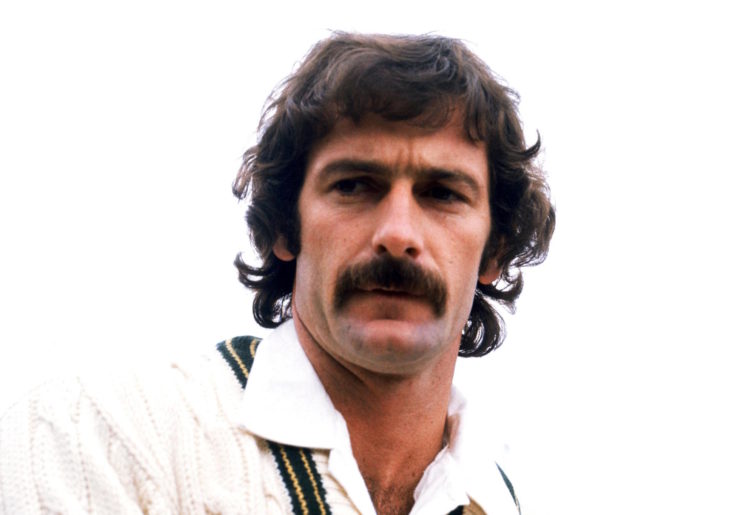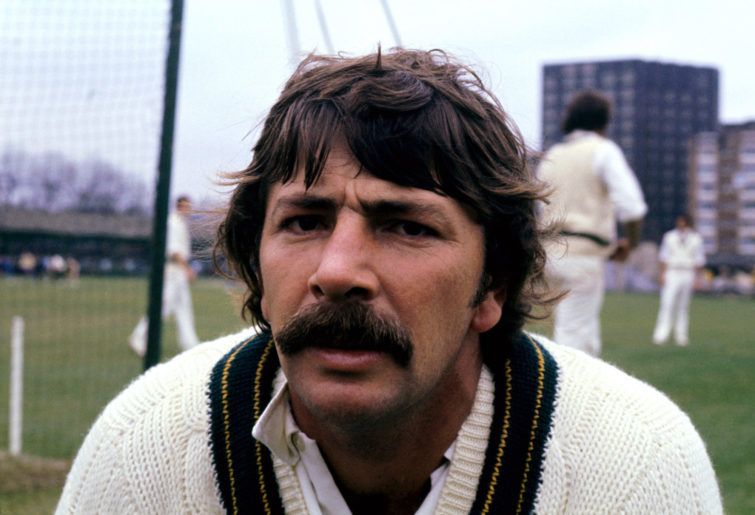WATCH: Freddy Flintoff's son dominates County 2nds game batting exactly like his dad
Check out some of the short-arm pull shots from Rocky Flintoff!
Opinion
In high school in the late 1970s, our English teacher set an assignment for us.
We had to read and critique an autobiography from the school library. Most of my classmates were stuck with turgid, long-winded travails penned by earnest figures in history – poets, statesmen, historical figures uninteresting to a teenage boy, but mighty impressive-looking to the teacher.
It all had the portents for being a drab week’s reading, until, by chance, I picked off the shelf a book called “You’ll Keep” by Australian cricket wicketkeeper Rod Marsh. It satisfied all the requirements of the assignment and my English teacher nodded her assent when I produced the book, if a little reluctantly.
Rod Marsh made my potentially boring week a good one.
When news came through that he’d passed away today, March the 4th, aged 74, I remembered that autobiography, and the self-deprecating character beyond the dust-jacket.
I learned much about Rod Marsh from that English assignment, even though by then I’d watched him play countless cricket tests, starting from that white-hot era of the mid 1970s, when Australian cricket seemed to ride the crest of a wave. The demolition of the West Indies in the 1975-76 series in Australia proved a nadir to the Carribean nation who would come back to inflict all manner of pain on the Australians from that point on till well into the 1990s.
Rod Marsh was an ever-present in those memorable battles all the way through to his 1984 retirement.
In his book, he recalled being saddled with two ignominious nicknames – “Bacchus” and “Iron Gloves” and admitting that in his early career he thoroughly earned them.
But this cricketing fan saw no evidence of that – only of the nuggetty but supremely agile gloveman who often took screaming catches in front of first and even second slip (and given those two positions were often occupied by the Chappell brothers, you’d want to be sure of yourself).
In a later memoir, “The Gloves Of Irony”, he talked about the battering his hands took from keeping to Dennis Lillee and Jeff Thomson,marvelling at Lillee’s change of pace – “one ball would smack into my gloves, the next one wouldn’t, and if I couldn’t tell the difference, the batsman was having a horror time…” Thommo, it seemed,had no change of pace, just arthritis-inducing thunderbolts that Marsh seemingly stood halfway to the boundary fence to field.
Marsh was front and centre of the World Series Cricket revolution and even exemplified the transition from the “gentlemen’s game” to full-time professionalism, with a dedication to his craft and a will to win which would sometimes get exposed by the added TV cameras. I remember him calling a batsman back in the pre-Packer era because he couldn’t be sure the ball hadn’t hit the ground.

Dennis Lillee is one of Australia’s greatest ever cricketers. (Photo by S&G/PA Images via Getty Images)
Only a year later, he took a screamer to dismiss one of the West Indian batsmen who were piling untold misery on the Australian attack – take your pick from Gordon Greenidge, Desmond Haynes, Viv Richards or Clive Lloyd. TV replays showed that the ball had hit the ground as he gloved it. Later on, he reputedly said, “That bloke was going to plaster us all over the fence.” Just in case anyone thought World Series Cricket was simply an exhibition.
Yet there was a blunt honesty in the way Marsh went about his business and an intolerance for shenanighans. He was there behind the stumps on one of the most infamous days in cricket history, when on the 1st of February, 1981, Greg Chappell directed his brother Trevor to bowl the last ball of a one-day international at the MCG underarm, in order to prevent the possibility of New Zealand lower-order batsman Brian McKechnie hitting a six to tie the game. Marsh was clearly in disagreement with his captain, shaking his head, saying “No, mate, don’t do this,” picked up by the stump microphone.
As well as taking part in cricket’s revolution of the late 1970s, Marsh revolutionised the keeper position, by adding batting talent to his place in the order. He was third in the pecking order of wicketkeepers in 1970, but jumped the queue to make his debut in the 1970-71 Ashes series, based on his batting prowess. In the 5th Test of the series, with Marsh on 92 not out, captain Bill Lawry declared to get an extra hour at England. Rather than being aggrieved over the decision, Marsh said he’d gained forty runs rather than losing eight, as he thought Lawry should’ve declared an hour earlier.
Two years later, he DID become the first Australian wicketkeeper to hit a test century, with 118 in a Test against Pakistan. he also hit an unbeaten 110 in the second innings of the memorable 1977 Centenary Test against England, and in the same game passed Wally Grout’s record with his 187th wicketkeeping dismissal – I can’t be sure, but there’s every chance it was a catch off Dennis Lillee’s bowling.
As the cricketing war of the late 70s came to an end, Rod Marsh continued as an irremovable bolt in the Australian team, in both Test and one-day internationals.

Rodney Marsh – an Australian cricket legend. (Photo by S&G/PA Images via Getty Images)
Kerry Packer’s cricketing revolution put more emphasis on limited-overs matches, and Marsh embraced the concept with both gloves and bat. A powerful late-innings hitter was a bonus in the World Series Cup summers of the early 80s, and in 1981, Marsh launched an extraordinary last over assault on New Zealand bowler Lance Cairns, taking the first five balls of the over for 26 – a neat and symmetrical scorecard of 6,4,6,4,6. Cairns famously waved a white hanky in surrender before bowling the last ball of the innings – Marsh was caught on the fence.
Marsh followed Greg Chappell and Dennis Lillee into retirement at the end of the 1984 Test series against Pakistan, though he didn’t announce his departure until the completion of the one day series later in the month, not wanting to detract from the spotlight afforded to his long-time team mates. He finished with 355 Test dismissals – a record for the time and the exact same amount as Lillee’s record haul. His last game was something of an anti-climax – a hastily arranged 3rd match in the World Series Cup finals, after game 2 had ended in a tie between Australia and the West Indies, and with the West Indians 1-0 up, no one seemed quite sure what to do next. He bowed out with the MCG crowd chanting his name, though his contribution to Australian cricket continued right through to this day, as a coach, selector and mentor.
He tried his hand as a commentator, but his forthright on-air views on the number of limited-over matches being played didn’t gel with Kerry Packer.
Marsh wasn’t about to be silenced or coerced, even by the man paying his wage, and he left the commentary booth soon after.
He was a hero to many of us growing up playing Saturday morning cricket at local parks. His iconic red keeping gloves were a sought-after equipment asset to any budding wicketkeeper of the time. His straight-shooting, no-nonsense approach made him an asset to any captain he served under, and we practiced his athletic dives into a mate’s swimming pool to try and mimic the man who shook off the nicknames to become one of our cricketing giants. Today is a sad day for Australian cricket.